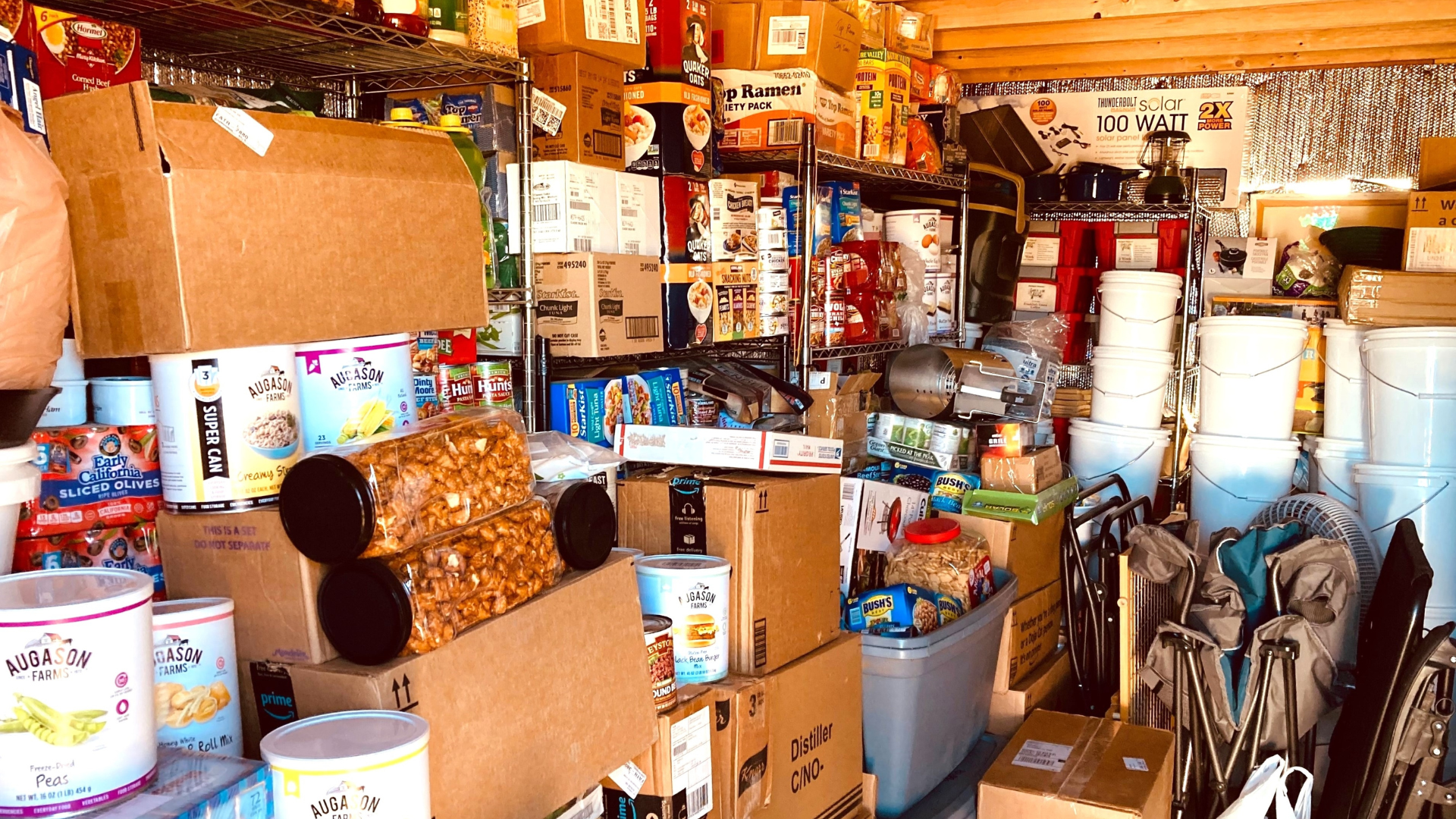It's late, you're sleep deprived, your loved one is not feeling well and you're on the phone with the doctor's office weighing the options. Should you call an ambulance or transport your loved one to the emergency room yourself?
This scenario is just one of many that more than 1 in 5 Americans who care for a loved one may routinely encounter.[i] From medical appointments to helping with everyday tasks like cooking and cleaning, caregiving can be an all-consuming juggling act, one that more than 50 million people in the United States do according to a AARP report. Add in the pandemic and it’s the perfect storm for caregiver burnout—a state of physical, emotional and mental exhaustion.
Burnout occurs when caregivers don't get the help they need or are trying to do more than they are physically or financially able to do.
Burnout occurs when caregivers don't get the help they need or are trying to do more than they are physically or financially able to do.[ii] If caregivers are only concerned with the care of their loved ones, they may begin to neglect personal needs, which could lead to self-isolation, depression and poor health. During peak illness seasons, including the current pandemic, caregivers may ignore the signs of their own medical issues (sprained muscles or respiratory infections), opting to self-diagnose, medicate, or cancel much needed well-visits and doctor appointments.
Another thing caregivers have to think about, especially now, is practicing social distancing to limit exposure to harmful infections – including COVID-19, stomach viruses, colds. This means a caregiver has to restrict who can visit— including family members, friends, even health aides and other medical professionals who otherwise might be able to help care for the loved one and give the caregiver a break. Delays in care for the caregiver, lack of help and stress from added responsibilities could land the caregiver in the hospital and the person they were trying to protect alone or in a care facility. All of these concerns are only heightened during the current pandemic.
Stockpiling of essentials—like toilet paper, wipes and disinfectant products—left many caregivers scrambling for alternatives.
In March, Ohio Governor Mike DeWine issued a stay-at-home order to help reduce the novel coronavirus spread, also known as COVID-19. As part of the stay-at-home order, non-essential workers, students and those with immune-suppressed systems were told to shelter-in-place. While many caregivers may have prepared as much as they could to shelter-in-place by adding extra gloves, bleach wipes and face masks to medical supply orders, they couldn’t prepare for another problem that the virus brought—product shortages. Stockpiling of essentials—like toilet paper, wipes and disinfectant products—left many caregivers scrambling for alternatives, some even driving to multiple stores only to find everything they needed was gone. That led to worries about when or if products would be restocked and at what cost. Even with support from local pantries; medical facilities, like Fresinus Medical Care; and neighborhood organizations, like the May Dugan Center, stepping in to helping to fill some needs, the harm of the shortages will be ongoing.
Caring for another person, involves caring for yourself first.
Caring for another person, involves caring for yourself first, a concept that many may understand, but struggle to put into practice.[iii] Understanding the underlying causes of a caregiver’s anxiety and stress can help reduce burnout.
Some of the things that may contribute to burnout are:
- The relationship with the person receiving care. Not having a clear understanding of the caregiver's roles and duties can cause the caregiver to take on more than they should. Conversations on what the person being cared for needs or expects from the caregiver, his or her medical team and others who may help provide care can help.
- Finances. While most of the care may be covered by insurance or other sources, sudden out-of-pocket expenses—like hospital parking fees, medical and prescription co-pays, and other necessities (toilet paper, wipes, cleaning supplies), can have a significant impact on a caregiver's budget. The rise in food prices—like milk, beef and chicken—due to outbreaks in processing facilities and issues with the supply chain is also a concern. Utilizing round-trip, health insurance covered, transportation services to covered medical and dental appointments, and asking about prescription discount programs (i.e. GoodRx) and using store loyalty programs can help reduce this burden.
- Feeling as if you have to do everything yourself. Caregivers can burn out trying to do everything themselves, whether due to a concern about being considered a failure, not wanting to be a burden or because they’re afraid to ask for the help they need. Working with a loved one’s care team and talking with other caregivers can help reduce this feeling and facilitate healthier relationships.For many caregivers, navigating the care continuum for a loved one can be overwhelming. Learning and sharing resources, like this one from USA.gov disability services, checking on caregivers, encouraging them to talk to their doctors and continuing to offer help and support can be the lifeline that they need to recover when they’ve burned themselves out.
[i] Caregiving in the U.S. 2020, https://www.caregiving.org/caregiving-in-the-us-2020/
[ii] Caregiver Burnout, https://my.clevelandclinic.org/health/diseases/9225-caregiver-burnout
[iii] Taking Care of YOU: Self-Care for Family Caregivers, https://www.caregiver.org/taking-care-you-self-care-family-caregivers



.png)

.png)
.png)

